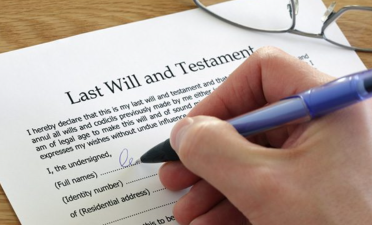A will is a legal document that a person uses to distribute his or her property and designate the heirs of his or her estate before his or her death. In the United States, making a will is an important means to ensure that the property can be distributed according to personal wishes after death. Property notarization of a will means that during the process of establishing a will, the notary office will review and confirm the authenticity and legality of the will. This article will elaborate on the relevant knowledge of property notarization of a will in the United States, including the types of wills, the conditions for making a will, the process of property notarization, etc.
A will is a legal document that a person uses to distribute his or her property and designate the heirs of his or her estate before his or her death. In the United States, making a will is an important means to ensure that the property can be distributed according to personal wishes after death. Property notarization of a will means that during the process of establishing a will, the notary office will review and confirm the authenticity and legality of the will. This article will elaborate on the relevant knowledge of property notarization of a will in the United States, including the types of wills, the conditions for making a will, the process of property notarization, etc.

Types of American wills
- Notary Will
A notarized will refers to a will in which the notary office reviews and confirms the authenticity and legality of the will during the process of establishing the will. A notarized will has a high legal effect and is protected by law.
- Holographic will
A self-written will refers to a will written by the testator himself or herself, without the need for review and confirmation by the notary office. The legal effect of a self-written will is relatively low, but it is still protected by law.
- Oral Will
An oral will refers to a will in which the testator expresses his or her wishes for property distribution in verbal form. Oral wills have the lowest legal effect and are only protected by law in certain circumstances.
- Durable Power of Attorney for Property
A disabled will is a will in which the testator authorizes others to handle his property on his behalf. This will is applicable to situations where the testator cannot personally handle the property due to physical reasons.

Conditions for making a will
- The testator must have full civil capacity. That is, the testator must have the ability to express his will independently.
- The testator must have a true will, that is, the content of the will must be the true will of the testator.
- The content of the will must be legal and must not violate laws, regulations and public order and good customs.
- The testator must clearly designate the heirs of the estate and specify the proportion of the estate distribution.
